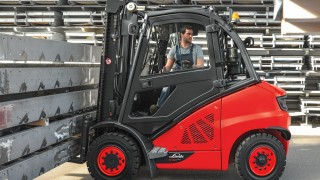
Ergonomics as a guiding principle
Ergonomic design in forklifts and warehouse handling equipment has a long history at Linde Material Handling. The foundations of this were laid with the development of the hydrostatic drive, more than 50 years ago. This technology enabled peerlessly precise control, and made the driver’s job easier. Since then, designing around the requirements of operators has given rise to numerous innovations which reduce the strain on the driver and make for increased comfort and safety. And beyond the truck itself, the ergonomic principle has shaped development at Linde. Whether safety devices, fleet management software, or service concepts – it’s all geared toward perfect synergy between man and machine.
Effective protection for drivers and operators
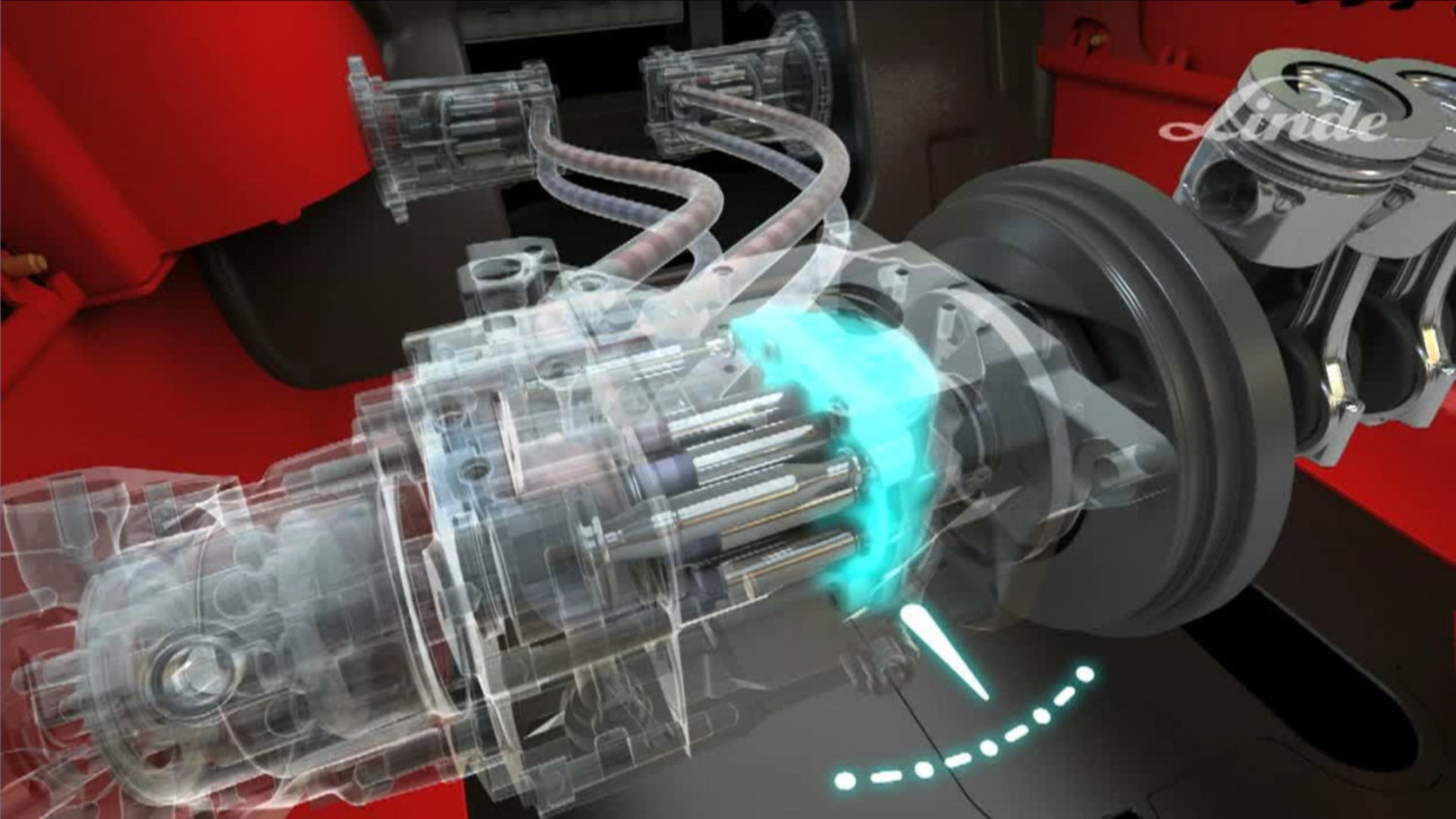
The hydrostatic drive from Linde ensures exceedingly smooth handling

The hydrostatic drive from Linde ensures exceedingly smooth handling
Drivers and operators of forklifts and warehouse handling equipment are exposed to a wide variety of mechanical vibrations in their daily routine. The technical term is human vibrations, meaning vibrations, shocks, and impacts which occur during routine operation. Even if the individual vibrations are barely perceptible – taken as a whole they put a considerable strain on the employee. For more than 20 years, therefore, Linde Material Handling has worked intensively to research and develop technologies to effectively guard the operator against these forces. With success: Linde products do not only fall below the legally prescribed limits. Linde trucks also regularly come out on top in independent tests versus competing designs.
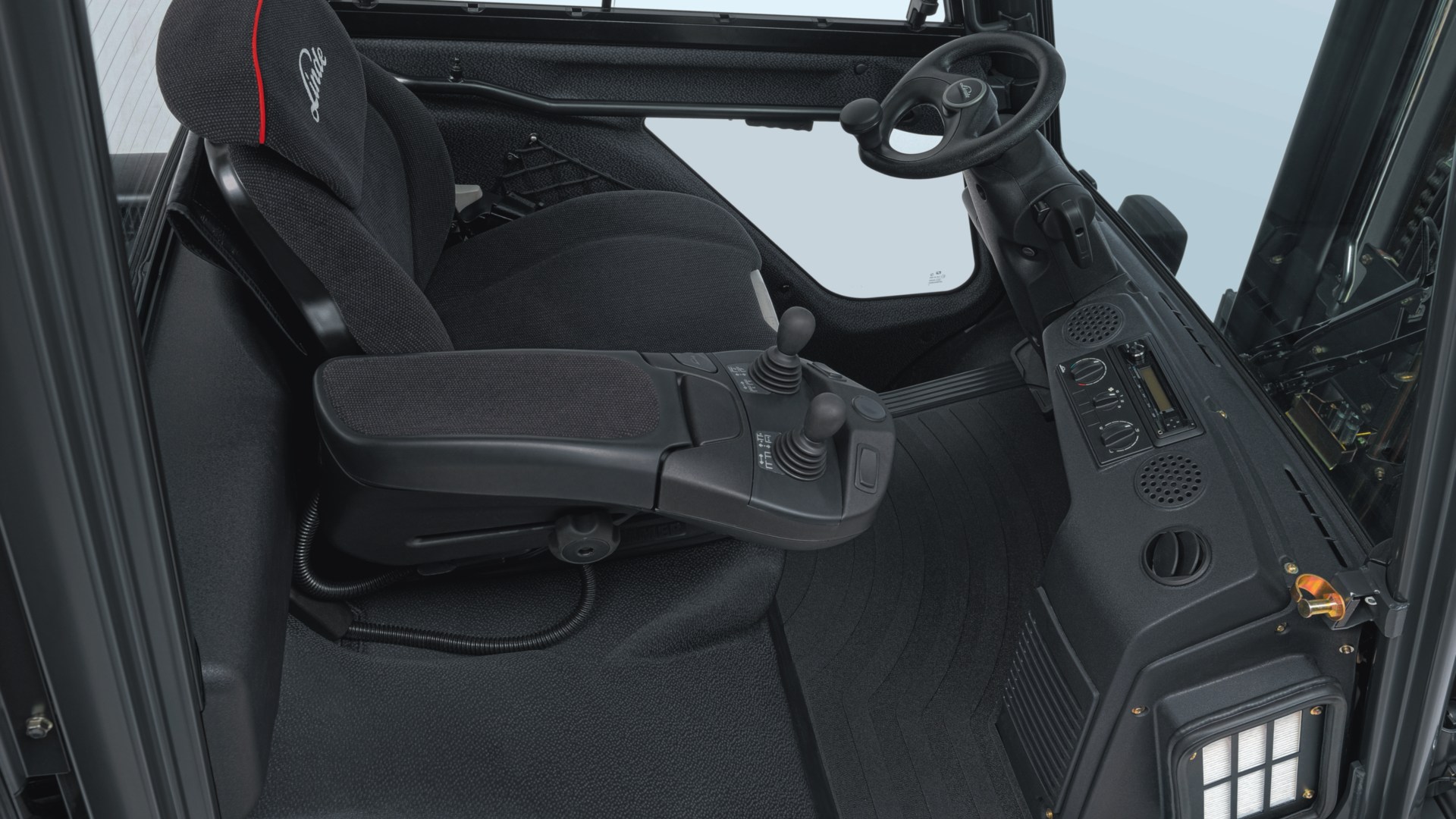
Especially ergonomic – the driver's compartment of a Linde truck

Especially ergonomic – the driver's compartment of a Linde truck
Alongside the hydrostatic drive, which among other things ensures gentle acceleration and braking, the driver is above all protected by the systematic isolation of the individual components. The ergonomic design of the driver’s workplace is therefore the key to safe, comfortable, and efficient operation. Since the strain on the driver is low, the accident risk is reduced, absences due to illness go down, and performance increases.
Precise and responsive steering
Thanks to the patented twin-pedal control, Linde forklifts are exceptionally responsive and precise to steer. The technical basis for this is the hydrostatic drive, which transmits the motor’s power directly to the drive wheels. The right pedal moves the truck forward, the left pedal backward. The drive motor operates continuously.
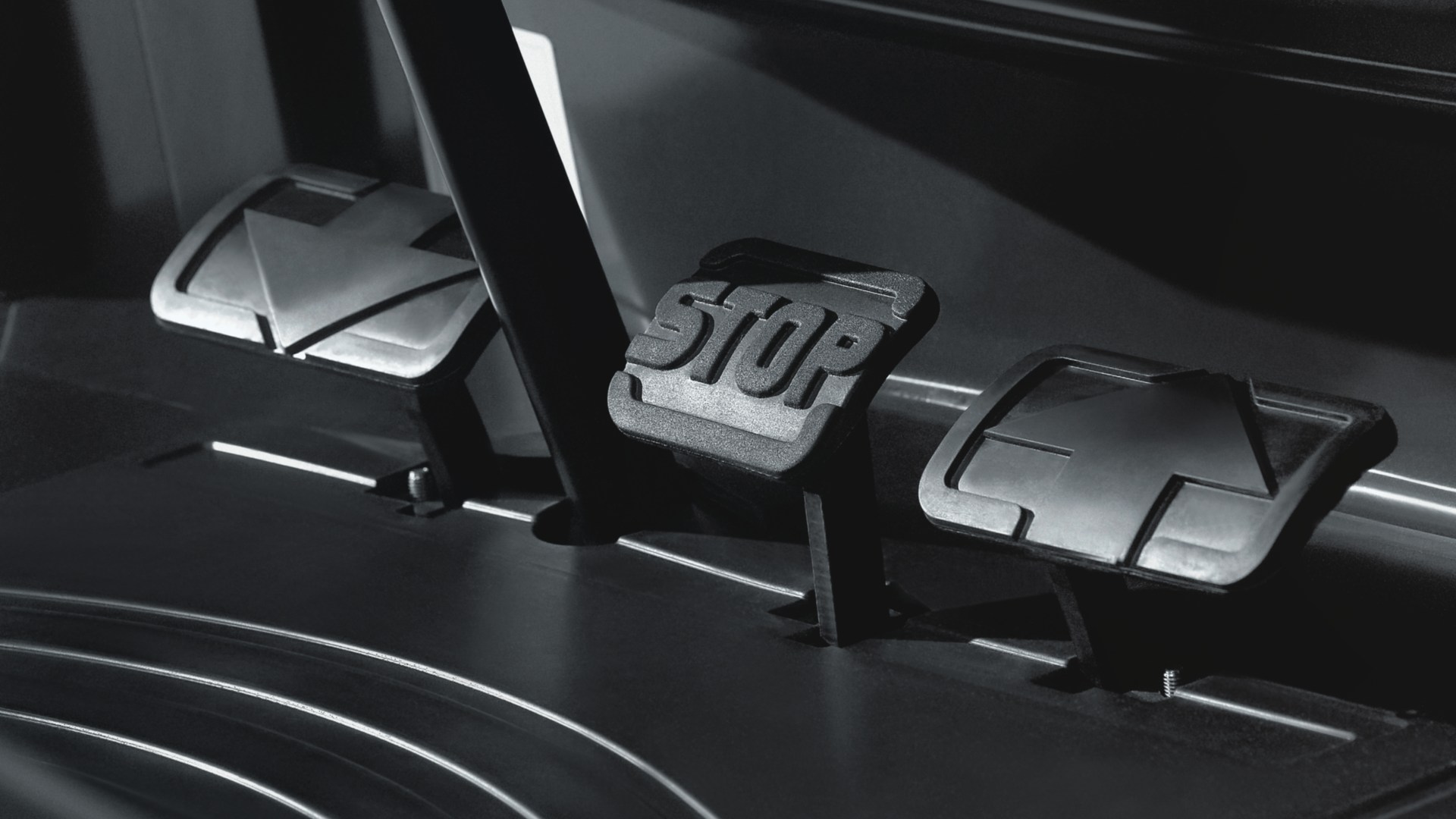
Twin-pedal control ensures the best possible results

Twin-pedal control ensures the best possible results
Maximum acceleration is automatically regulated. As soon as the driver takes their feet off the pedals, the truck comes to a stop. Braking is not necessary. Since both feet are constantly in contact with the pedals, the driver is always getting direct sensory feedback about the movement of the truck – it becomes an extension of their body.
The perfect workplace
With forklifts and warehouse handling equipment from Linde Material Handling, man and machine form a single entity. In all types of trucks, control elements are arranged such that the user can always easily reach them. Regardless of which model, the driver’s workplace is optimized for the truck’s intended purpose, or can be adjusted to it. An example is the new platform lift truck Linde T 20 - T 25 SP. Thanks to Linde’s e-driver technology, it can be comfortably operated with one hand. The driver stands, relaxed, at a 45° angle to the direction of travel, and has optimal all-round visibility of the route and the current load.
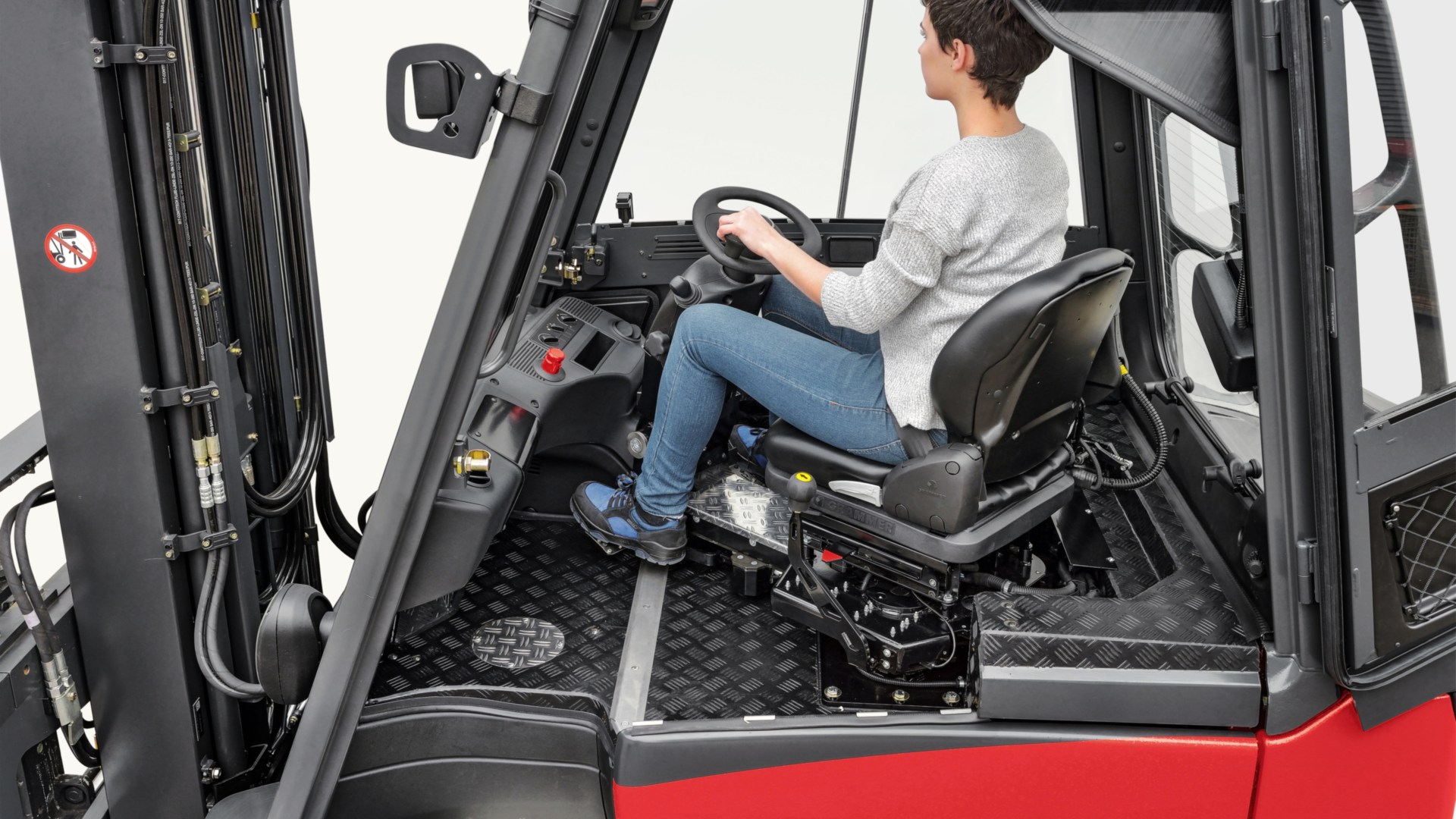
Worldwide unique – the rotatable driver's cabin from Linde

Worldwide unique – the rotatable driver's cabin from Linde
A unique selling point of the Linde forklift is the pivotable driver workplace (link to article). This gives the driver perfect visibility even when reversing, without having to twist their back or neck around. Linde Load Control ensures further operator comfort. Using two joysticks integrated into the armrests, the driver can simply and precisely control the forklift’s working and auxiliary hydraulics.
User-oriented design as ultimate guiding principle
Ergonomic design of industrial trucks and driver workplaces will remain a central element of the Linde philosophy into the future. However, just as increasing digitalization is changing the interaction interfaces between people and machines, so the focus of user-oriented design is shifting to encompass the entire working environment. The tasks ahead range from the design of user interfaces for assistance systems, controls, and software solutions, to the use of more mobile information technology in supporting drivers and fleet managers.
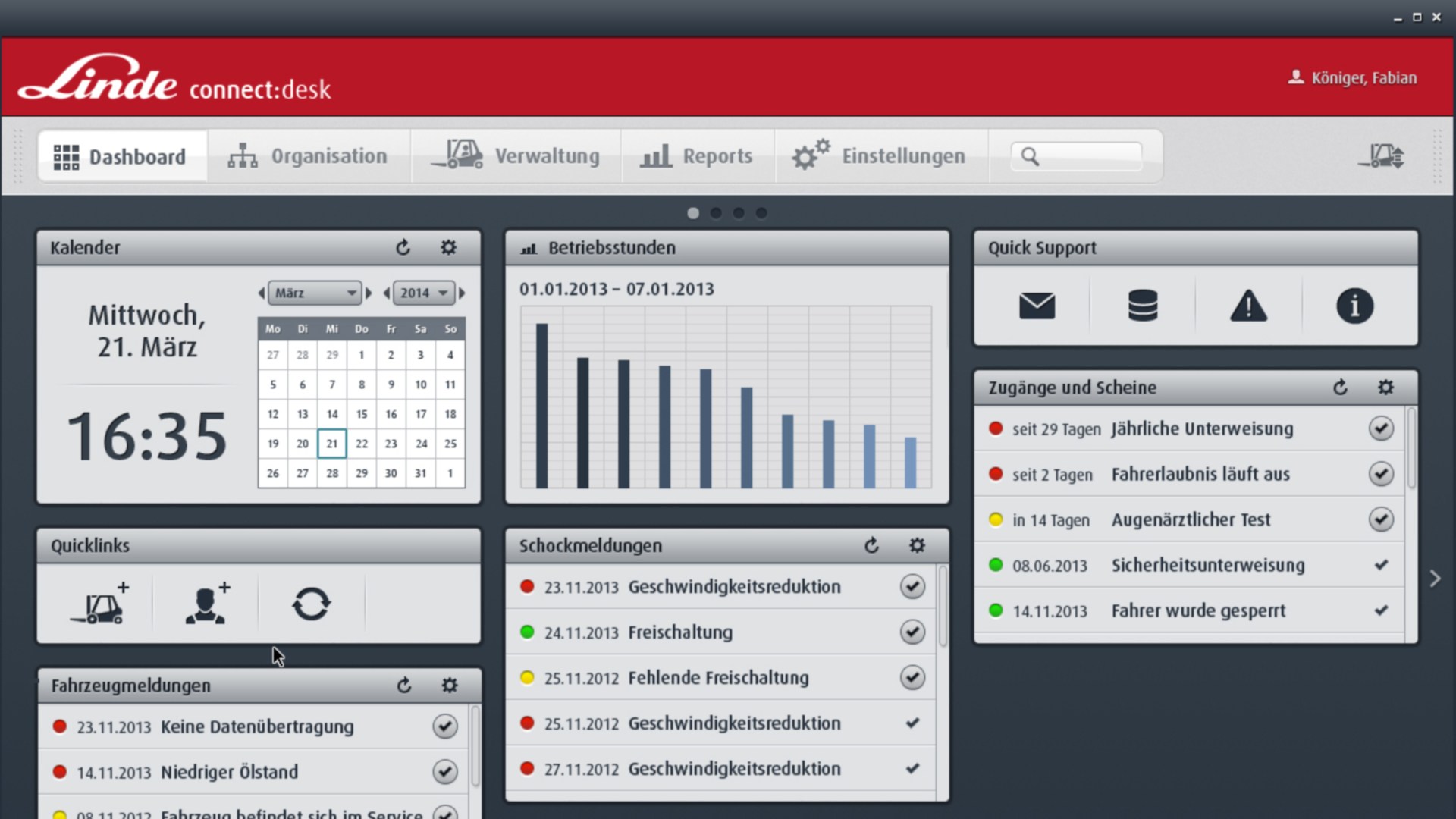
User interface of the fleet management software connect:

User interface of the fleet management software connect:










